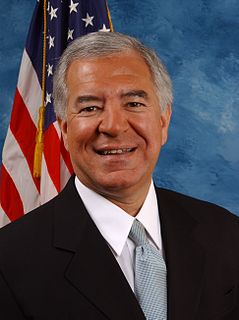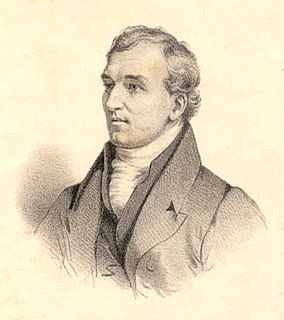A Quote by Aldo Leopold
I am asserting that those who love the wilderness should not be wholly deprived of it, that while the reduction of the wilderness has been a good thing, its extermination would be a very bad one, and that the conservation of wilderness is the most urgent and difficult of all the tasks that confront us, because there are no economic laws to help and many to hinder its accomplishment.
Related Quotes
What the Indians are saying is that they are recognizing the right of wilderness to be wilderness. Wilderness is not an extension of human need or of human justification. It is itself and it is inviolate, itself. This does not mean that, therefore, we become separated from it, because we don't. We stay connected if, once in our lives, we learn exactly what that connection is between our heart, our womb, our mind, and wilderness. And when each of us has her wilderness within her, we can be together in a balanced kind of way. The forever, we have that within us.
That is how life goes--we send our children into the wilderness. Some of them on the day they are born, it seems, for all the help we can give them. Some of them seem to be a kind of wilderness unto themselves. But there must be angels there, too, and springs of water. Even that wilderness, the very habitation of jackals, is the Lord's.
To be commanded to love God at all, let alone in the wilderness, is like being commanded to be well when we are sick, to sing for joy when we are dying of thirst, to run when our legs are broken. But this is the first and great commandment nonetheless. Even in the wilderness - especially in the wilderness - you shall love him.
The exquisite sight, sound, and smell of wilderness is many times more powerful if it is earned through physical achievement, if it comes at the end of a long and fatiguing trip for which vigorous good health is necessary. Practically speaking, this means that no one should be able to enter a wilderness by mechanical means.
When the wilderness movement emerged, it emerged separate from the issue of social inequality and the economic problems of survival. It was a preservationist ecology movement created by an occupying culture. Clearly, a wilderness movement started by Native Americans would not have had the same roots.
Wilderness is a resource which can shrink but not grow. Invasions can be arrested or modified in a manner to keep an area usable either for recreation, science or for wildlife, but the creation of new wilderness in the full sense of the word is impossible. It follows, then, that any wilderness program is a rearguard action, through which retreats are reduced to a minimum.
Many, and some of the most pressing, of our terrestrial problems can be solved only by going into space. Long before it was a vanishing commodity, the wilderness as the preservation of the world was proclaimed by Thoreau. In the new wilderness of the Solar System may lie the future preservation of mankind.
We have a very old conservation movement, particularly in the United States, which has focused on campaigns to protect endangered species: the spotted owl, the old-growth forest. But usually it stops there. To me, biodiversity is the full spectrum. Species conservation is not only about wilderness conservation. It?s also about protecting the livelihood of people even while changing the dominant relationship that humans have had with other species. In India, it?s an economic issue, not just an ecological one.
I grew up in northern Minnesota on 40 acres of wooded land 20 miles from the nearest town, and so the wilderness was home. It was not an unsafe place. I had that advantage. But there are so many representations of the wilderness being dangerous. You know, depictions of wild animals attacking people. It's like, "No, we kill those animals in far greater numbers than they kill us."


































